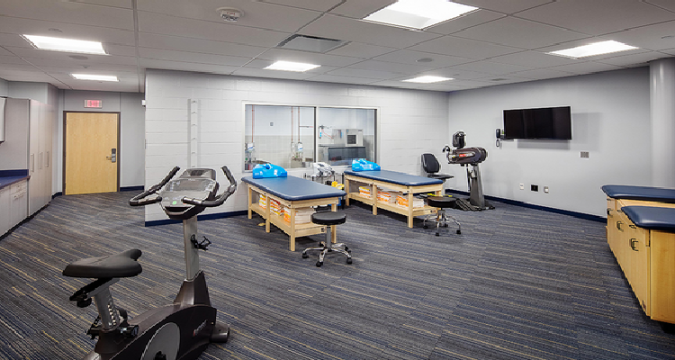
In the high-intensity world of professional football, the physical demands on players are immense. Every match, every training session, and every competition pushes athletes to their limits, making health and fitness essential not only for peak performance but for longevity in the sport. Comprehensive medical services, therefore, are indispensable in ensuring players are not just match-fit but are resilient, prepared, and capable of maintaining top form throughout the season. Clubs that invest in top-tier medical support equip their athletes to face the challenges of the sport head-on, optimizing recovery, preventing injuries, and maximizing performance.
Injury Prevention and Management
One of the cornerstones of comprehensive football medical services is injury prevention and management. As players are often at risk for both acute injuries like sprains and strains, as well as chronic issues related to overuse, an effective medical team focuses on identifying risks before they manifest as injuries. Through thorough physical assessments, biomechanical screenings, and regular monitoring of players’ physical conditions, the medical staff can detect early warning signs of potential injuries.
Prevention programs tailored to individual players’ needs are crucial in this regard. These may include strength and conditioning routines, flexibility exercises, and stability training designed to address weaknesses or imbalances. Additionally, sports-specific training geared toward the rigorous demands of football can significantly reduce the likelihood of injuries. When injuries do occur, a swift, evidence-based response is vital. With a fully equipped medical team, immediate care can mitigate the severity of an injury, leading to a faster and more effective recovery process.
Rehabilitation and Recovery Protocols
In the event of an injury, rehabilitation and recovery become the primary focus. Comprehensive rehabilitation services encompass everything from initial treatment to full return-to-play protocols, utilizing a variety of therapies tailored to each individual case. This may include physical therapy, manual therapy, hydrotherapy, and even advanced techniques like cryotherapy or hyperbaric oxygen therapy, which are known to accelerate healing and tissue repair.
Recovery isn’t only about physical healing; mental resilience and psychological support play a vital role in a player’s ability to recover fully. An ideal medical team includes sports psychologists who help players maintain a positive outlook, manage stress, and set realistic recovery goals. Combining mental and physical recovery strategies empowers players to return to their sport not just physically prepared, but mentally resilient and confident.
Performance Optimization
Medical services for football clubs go beyond merely preventing and managing injuries—they are also about enhancing performance. This often involves collaboration between medical professionals, sports scientists, and performance analysts to create a holistic view of each player’s health and capabilities. Nutritionists ensure that players are consuming the right balance of nutrients to fuel their performance and aid in recovery. Diets may be tailored to players’ unique needs, accounting for factors like position, training intensity, and metabolic requirements.
Performance optimization also includes fitness assessments and conditioning programs designed to help players achieve their peak physical potential. By monitoring cardiovascular health, muscular strength, agility, and endurance, medical teams can track each player’s progress and make adjustments to training regimens as needed. Furthermore, personalized training plans minimize strain and maximize output, contributing to better performance on the field.
Data-Driven Health Monitoring
In recent years, technological advances have transformed the landscape of sports medicine, making data-driven health monitoring a game-changer in football. Wearable technology, such as GPS trackers and heart rate monitors, provides real-time insights into players’ exertion levels, movement patterns, and overall physical condition. By collecting and analyzing this data, medical teams can make informed decisions to prevent overtraining and spot signs of fatigue or potential injury.
Additionally, advancements in imaging technologies like MRI and ultrasound allow for precise diagnoses, enabling targeted treatments and more accurate recovery timelines. Blood tests, hydration analysis, and even genetic profiling further add layers of insight, enabling medical teams to tailor health plans to individual players’ needs. In this way, the use of data allows clubs to maintain optimal health standards, enhancing players’ readiness for peak performance.
Mental Health and Wellness Support
A truly comprehensive approach to medical services in football also takes into account the mental well-being of players. The psychological pressures of professional football can be immense, with players facing high expectations, public scrutiny, and the constant threat of injury. To help players manage these stresses, many clubs offer mental health and wellness support as part of their medical services.
Sports psychologists, mindfulness training, and access to confidential counseling services are valuable resources in helping players maintain mental resilience. Mental health support improves players’ focus, promotes emotional balance, and enhances their overall quality of life, all of which contribute to peak performance on the field. By addressing mental health as a core component of comprehensive medical services, football clubs can foster a more holistic approach to player wellness.
Conclusion
Comprehensive medical services are essential for football clubs aiming to maintain peak player performance. Through a multifaceted approach that includes injury prevention, rehabilitation, performance optimization, data-driven monitoring, and mental wellness support, clubs create an environment that fosters health, resilience, and excellence. When players feel supported in every aspect of their well-being, they are better equipped to face the physical and mental demands of football. With such a robust medical framework, football clubs not only enhance individual player performance but also secure long-term team success.